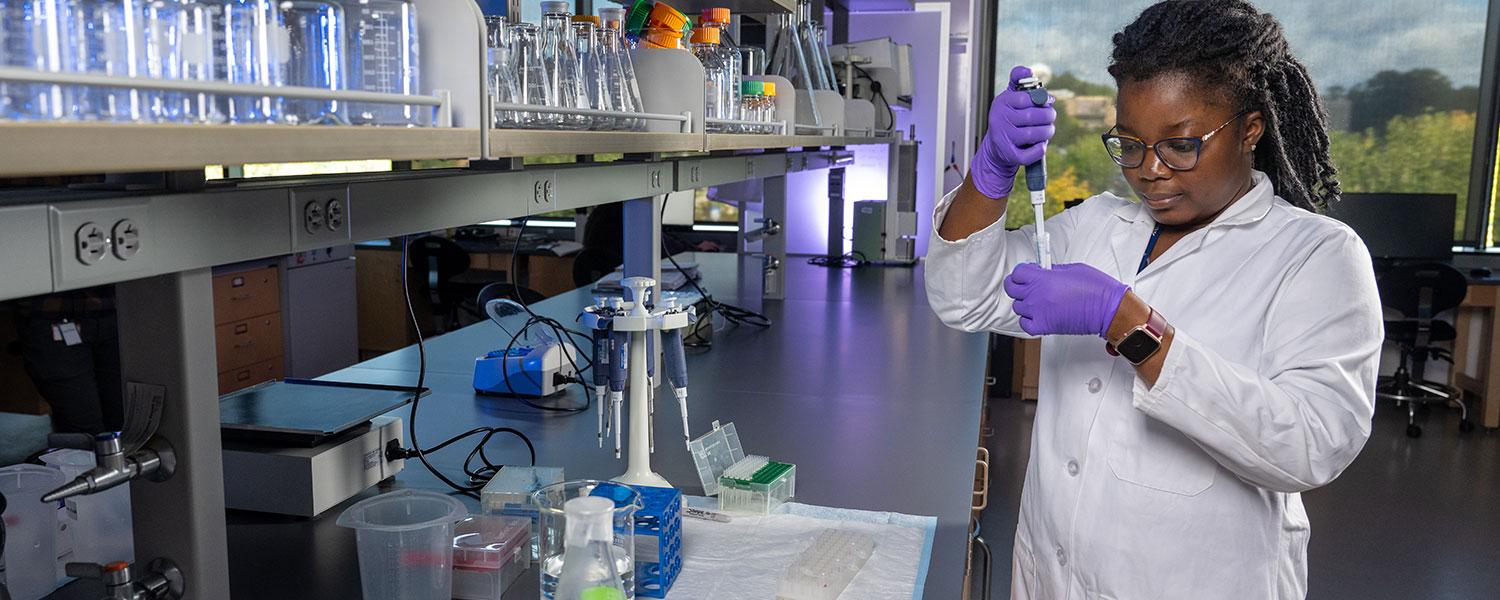
Greetings from the Vice President,
Daily I have the incredible fortune of being able to witness the accomplishments of our faculty, student and staff dedicated to advancing new research and creative activities. It is this university-wide effort by all members of the Kent State University community, that led to our recent designation as a Carnegie R1 (very high research) institution, the highest possible research ranking. We are extremely proud of this recognition and are working to leverage this status to build new and enhanced partnerships and to elevate the research and scholarly activity at KSU.
Frequently uncelebrated, our R&ED research support staff are second to none in their passion for helping our faculty and students succeed. Furthermore, many of our successes stem both directly and indirectly from the astounding generosity of those who have chosen to support our research and innovation efforts.
Faculty at KSU are working to address large-scale public health concerns in a number of innovative ways such as designing safer and more efficient trauma rooms, addressing drug resistance in breast cancer patients, identifying possible targets to prevent the progression of Alzheimer’s Disease, and using art history to better understand social injustice.
In addition to providing answers to questions of immense societal relevance, our research programs provide opportunities for students of all levels to engage in life-changing research experiences. One of the most gratifying aspects of my job is receiving emails from alumni explaining that their prior participation in undergraduate research cemented a passion for discovery resulting in a not-previously-considered career path.
Whether the great ideas and innovative solutions of tomorrow are born in a lab on one of our campuses, derived in the minds of one of our scholars, or developed through one of our many partnerships with business, industry, community, and other academic institutions, Kent State is positioned to make substantive contributions and major breakthroughs across myriad avenues of innovation and scholarly pursuit.
Our website is just one resource, and our dedicated staff are always ready and willing to assist, so please do not hesitate to contact any member of our team with questions or concerns.
Douglas L. Delahanty, Ph.D.
Vice President for Research and Economic Development















